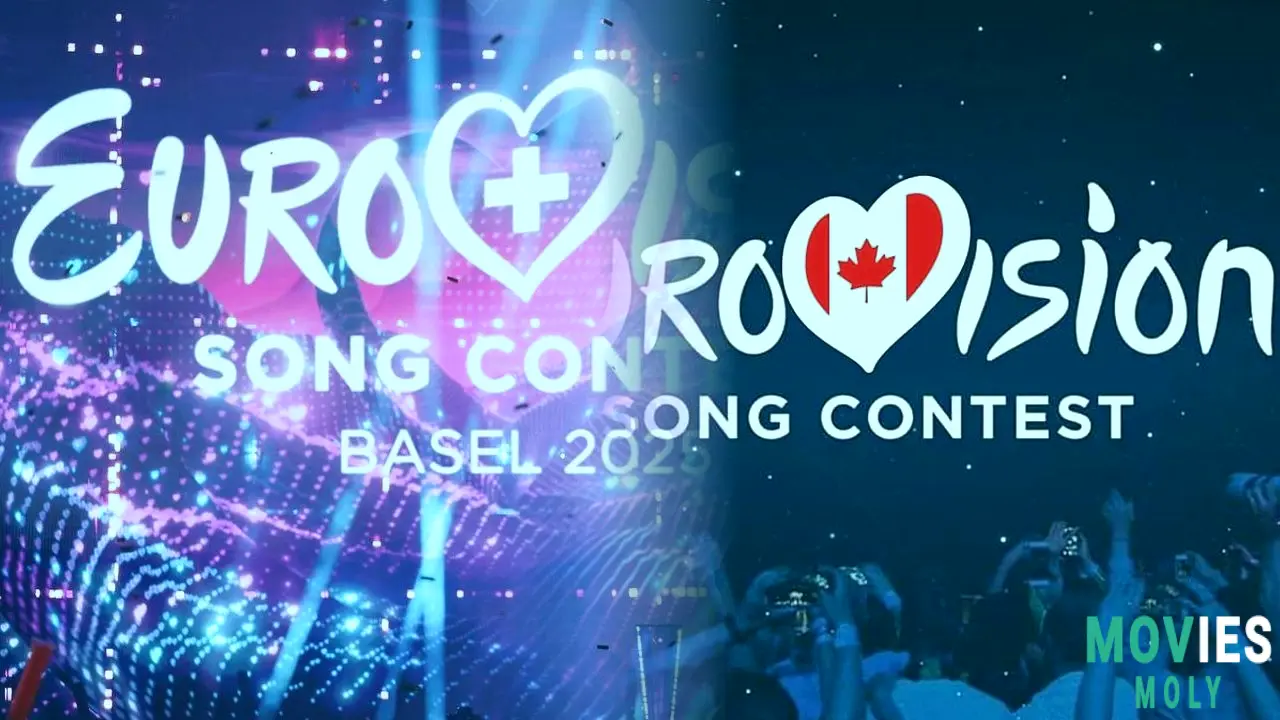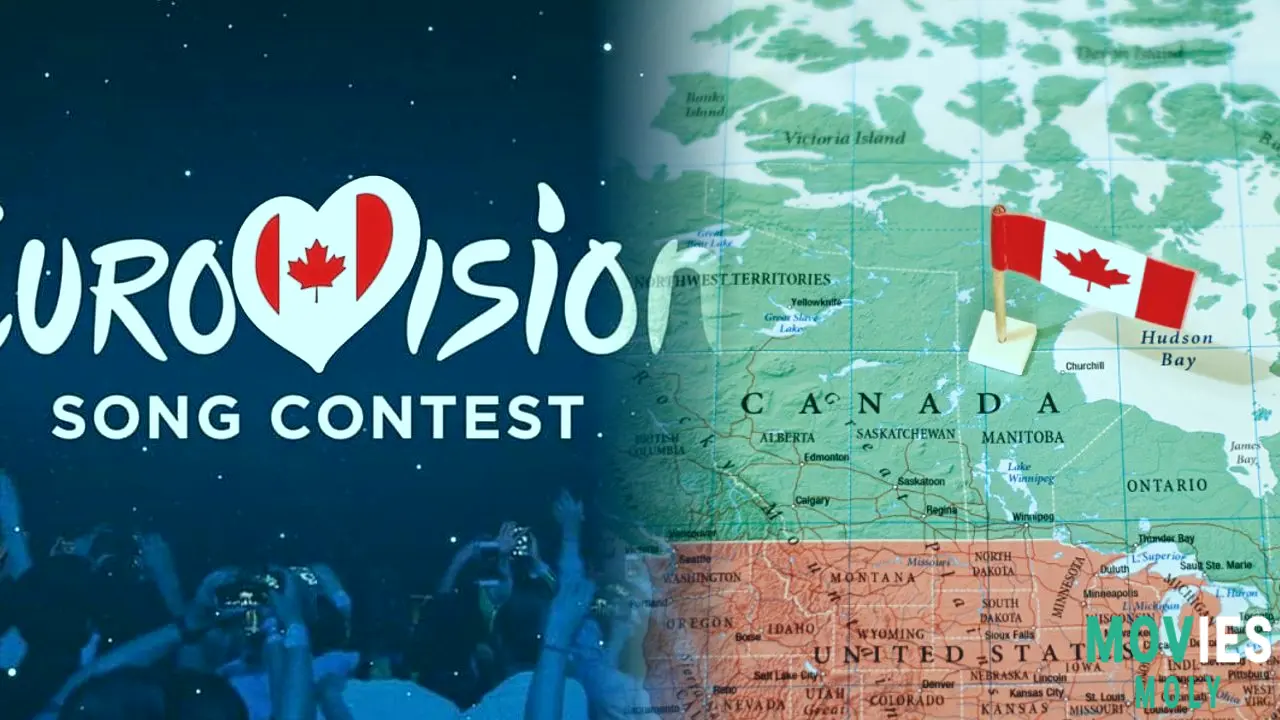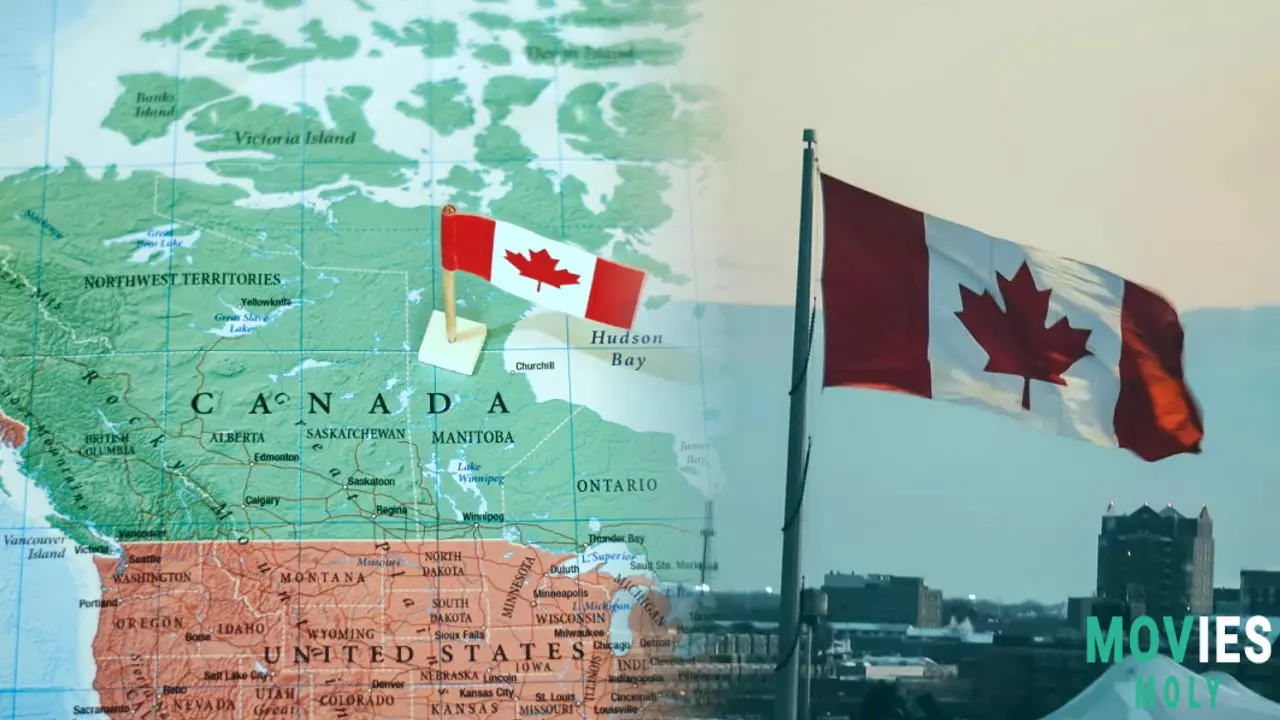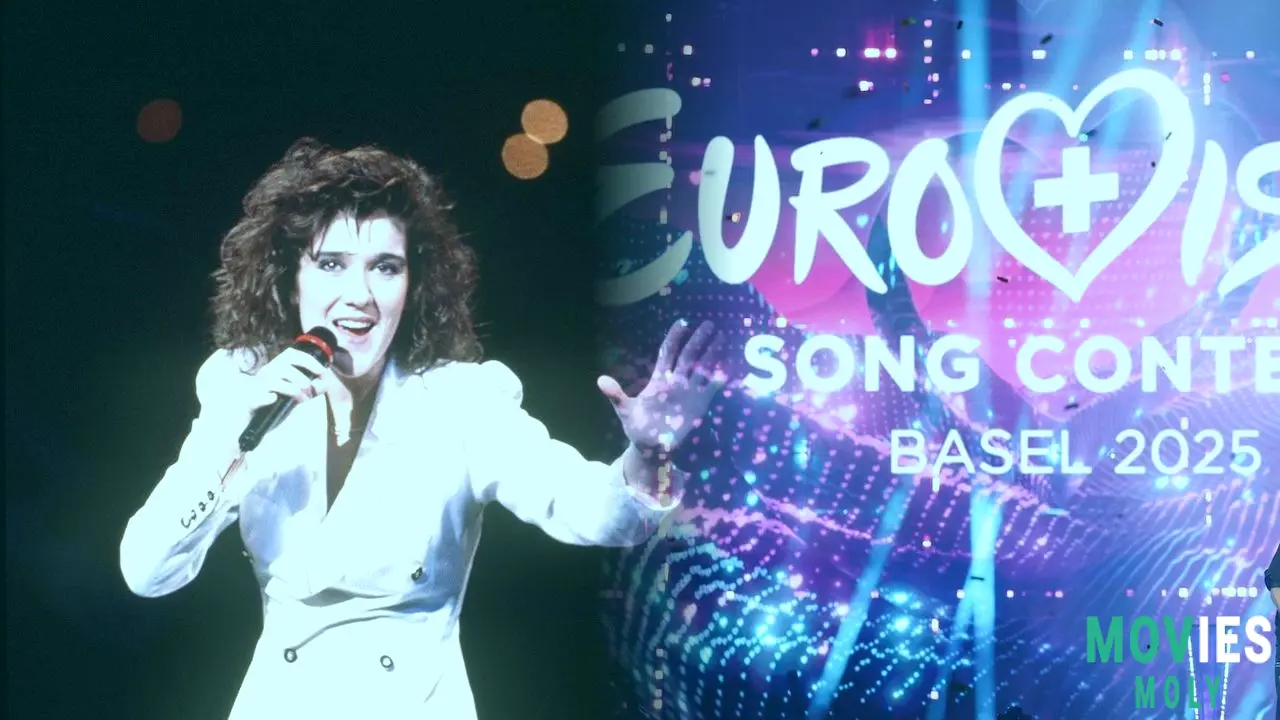Forget the maple syrup and hockey — Canada might soon be sending a performer to the world's biggest music show, Eurovision, and it's a move steeped in both cultural pride and international strategy.
TL;DR
- Canada is in early, confirmed talks to join the Eurovision Song Contest, a major international music event.
- The push is backed by Prime Minister Mark Carney and seen as a way to boost Canadian arts and deepen ties with Europe, aiming to distance itself from US reliance.
- Challenges include high participation costs and current internal disagreements within Eurovision, but the country has a history of Canadian artists representing other nations.
Imagine a stage bathed in glitter, booming pop anthems, and national pride erupting from a continent-spanning audience. Now, imagine a Canadian flag waving among them, not as a tourist, but as a full-fledged competitor. This seemingly whimsical notion moved closer to reality recently, appearing as a quiet but impactful line in Canada's federal budget on November 4.
The document teased that the Canadian government is working with its national broadcaster, CBC/Radio-Canada, to explore participation in the Eurovision Song Contest. Just days later, on November 13/14, Eurovision Director Martin Green confirmed that "The Canadian conversation with CBC/Radio-Canada is in its very early stages and we look forward to continuing our discussions with them." He added, "We’re always excited to know that broadcasters want to be part of the world’s largest live music show." [Source: David Mouriquand, "Canada is exploring the possibility of joining Eurovision...", Euronews, November 13, 2025]
For François-Philippe Champagne, Canada’s finance minister, this isn't just about a pop pageant. He told Global News that the contest is "a platform for Canada to shine." Champagne emphasized a broader vision: "This is about protecting our identity - yes, we want to protect our sovereignty, but you also want to help people in the arts sector and in the film industry to make sure they can shine around the world. And we have a lot to offer as Canadians."
Unveiling the Strategic European ConnectionThe timing of this Eurovision exploration is far from coincidental. It's deeply intertwined with Canada's shifting geopolitical strategy. The country has been facing renewed pressure from the United States under Donald Trump’s administration, which recently added a 10 percent tariff to US imports from Canada. Previously, Trump’s administration had imposed a 35 percent levy on all Canadian goods, including a 50 percent levy on metals and 25 percent on automobiles. [Source: David Mouriquand, "Canada is exploring the possibility of joining Eurovision...", Euronews, November 13, 2025]
In response, Prime Minister Mark Carney has signaled a clear desire to develop new trade relationships and deepen alliances with European nations. Carney made a point of visiting France and the UK in March on his first overseas trip as prime minister, famously declaring Canada "the most European of the non-European countries." This strategic realignment underscores Canada's desire to assert its cultural independence and diversify its international partnerships.
Sources familiar with the matter told CBC that Prime Minister Carney, who spent years studying and living in the UK, including a stint as governor of the Bank of England, is personally involved in this push for Eurovision participation. Dean Vuletic, a historian specializing in the Eurovision Song Contest, noted to Global News that Canada is "a country that is close to Europe, culturally, politically, especially the countries of the European Union… they’re the ones that Canada is looking to develop closer ties with considering the current situation in the world."
Considering the Financial Hurdles and Local Enthusiasm

While the prospect of Canada joining Eurovision generates excitement, it also brings up practical challenges. The Canadian Broadcasting Corporation (CBC), an associate member of the European Broadcasting Union (EBU) which organizes Eurovision, had previously "ruled out" the idea in 2022, deeming it "prohibitively expensive." This highlights a significant hurdle: fielding an entry for the contest, along with participation fees and travel costs, can be substantial.
However, the new federal budget addresses some of these financial concerns, including a $150 million funding increase for CBC/Radio-Canada and an additional $400 million allocated to various cultural organizations and funds. This renewed government backing suggests a stronger financial commitment to cultural initiatives, potentially offsetting the "prohibitive expense" of past considerations. Despite these costs, the competition rules allow countries to choose how they select their artists, meaning Canada wouldn't necessarily need a costly, televised national selection process.
Another point of discussion is the relatively low level of Eurovision awareness in Canada. Karen Fricker, a Brock University professor and Eurovision expert, noted, "Is it well enough known to really get momentum, is my biggest question." [Source: Abby Hughes, "Will Canada actually join Eurovision? Not without some challenges, experts say," CBC News, November 5, 2025] This contrasts with Australia, for example, where the contest had been broadcast for decades and was culturally ingrained before their official participation. Yet, with official government backing and the CBC exploring the option, this attempt is "firmer than it has been in the past," according to Fricker.
Drawing Lessons from Others and Navigating Internal Disputes

Canada wouldn't be the first non-European country to join the contest. Australia, also an associate member of the EBU like Canada, received a special invitation and joined Eurovision in 2015. This precedent offers a clear pathway for Canada's potential inclusion, demonstrating that geographical location isn't the sole determinant for participation.
However, the EBU currently faces its own internal disagreements that could impact expansion plans. The participation of Israel has been a significant source of controversy, with several European broadcasters, including Ireland, the Netherlands, and Slovenia, threatening to withdraw unless Israel's broadcaster KAN is banned. A scheduled vote on Israel's participation for November has since been postponed. As historian Dean Vuletic put it, "So right now, expanding Eurovision really isn’t the major focus of the European Broadcasting Union - it's trying to save the contest as it is."
Despite these challenges, Martin Green's enthusiastic statement about continuing discussions with Canada suggests that while the EBU is managing its current complexities, the door for new participants remains open. Critics like Diane Francis of Postmedia have called the Eurovision bid an "unjustifiable vanity project," arguing the money would be "better spent on cutting taxes and meeting the NATO commitments." Igor Malakhov, Executive Director of "Empower Canadian Ethnic Media," echoed this sentiment, suggesting Ottawa is prioritizing Eurovision over vital local and multicultural media support. However, from the Canadian government's perspective, this initiative is a long-term investment in cultural diplomacy and identity protection, aiming to elevate Canadian voices on a global stage.
Finance Minister François-Philippe Champagne on Canada's Eurovision aspirations: "This is about protecting our identity - yes, we want to protect our sovereignty, but you also want to help people in the arts sector and in the film industry to make sure they can shine around the world. And we have a lot to offer as Canadians."
For Canadian artists, this news could be a game-changer. Imagine a young Canadian singer-songwriter, inspired by global sounds, who previously saw Eurovision as a distant, European dream. With this news, their path to an international stage, backed by national support, suddenly feels a lot more real, offering a unique opportunity to showcase their talent on a massive global platform.
Even without direct participation, Canadian talent has already graced the Eurovision stage:
- Céline Dion: Famously won the contest for Switzerland in 1988 with "Ne partez pas sans moi."
- Natasha St-Pier: Represented France in 2001.
- La Zarra: A Montreal-born artist who represented France in 2023.
Practical Takeaways for Canadian Music Fans and Policy Watchers

- Beyond the Music: Understand that Canada's push for Eurovision is a significant part of its cultural diplomacy and strategic realignment towards Europe, moving beyond traditional US ties.
- Early But Serious: While still in "early stages," the strong governmental backing, including financial allocations, makes this bid more concrete than previous considerations.
- Watch the EBU: Keep an eye on the European Broadcasting Union's internal politics, particularly concerning Israel's participation. The resolution of these issues could influence the timeline and feasibility of new country inclusions.
- Opportunity for Artists: For Canadian musicians, this could open up incredible new international performance and exposure opportunities, potentially fostering a vibrant new chapter for Canadian arts on a global scale.
FAQ: Canada and Eurovision
When might Canada officially join Eurovision? Discussions are in their very early stages, so there's no set timeline. Given current EBU internal challenges, a confirmed inclusion isn't expected immediately, likely not for the upcoming 70th anniversary edition in Vienna in May 2026. How would Canada select its Eurovision artist? The competition's rules allow countries flexibility in how they choose their artists. Canada would not necessarily need to run an expensive, televised national contest; they could opt for an internal selection process, as some other participating nations do. Has Canada ever been involved in Eurovision before? While Canada has never formally participated as a competing nation, several prominent Canadian artists have represented other countries. Most famously, Céline Dion won for Switzerland in 1988. Why is Canada suddenly interested in Eurovision? The interest is part of a broader strategic move by the Canadian government to deepen ties with Europe and assert cultural independence, especially amid rising tensions and tariffs with the United States. It's seen as a platform to promote Canadian identity and arts globally.Sources
- Euronews: "Canada is exploring the possibility of joining Eurovision, something officials say reflects the country's effort to assert its cultural independence and deepen ties with Europe." Published on 13/11/2025.
- CBC News: "Will Canada actually join Eurovision? Not without some challenges, experts say." Posted: Nov 05, 2025.
- The Guardian: "Canada pushes to join Eurovision: ‘This is about protecting our identity’." Published: November 5, 2025.
- Postmedia (Diane Francis): "Diane Francis: Joining Eurovision nothing more than a Carney vanity project." Published: November 5, 2025.
- Postmedia (Igor Malakhov): "MALAKOV: Ottawa chooses 'Eurovision' over fighting disinformation." Published: November 6, 2025.
- HuffPost: "Canada Eyes Eurovision, Earns Applause And Boos." Published: November 06, 2025.
- Live Concert Industry: "Canada Wants to Join Eurovision In Strategic Bid to Align More Closely With Europe." Published: November 12, 2025.
- dpa: "Canada hints at Eurovision debut in surprise budget detail." Published: November 14, 2025.




